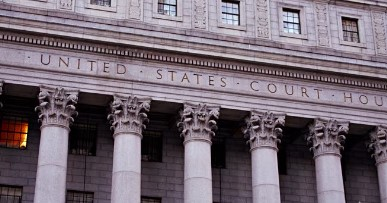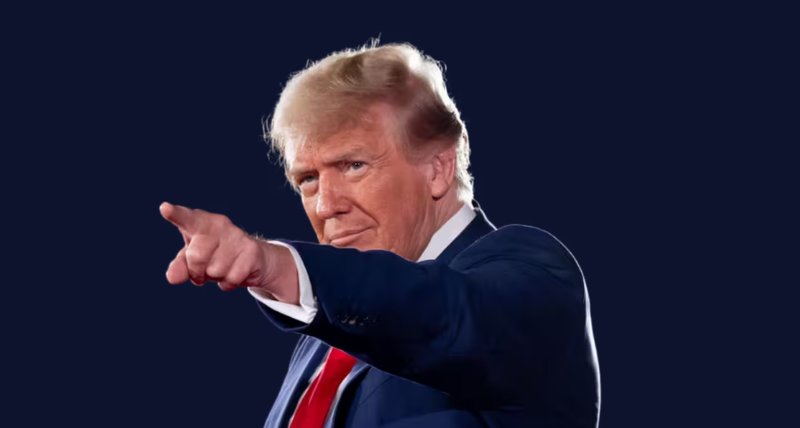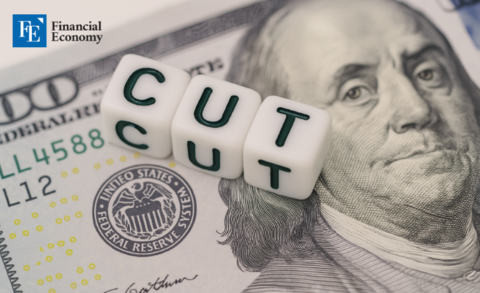Trump’s Defiance of the Courts: A Crisis for American Democracy?
Input
Modified
Trump vs. the Judiciary: A Long-Running Battle Escalates The Authoritarian Playbook? Undermining Judicial Checks and Balances The Future of the U.S. Legal System: Precedent or Constitutional Crisis?

Trump vs. the Judiciary: A Long-Running Battle Escalates
In a moment when legal norms and constitutional checks and balances are increasingly under scrutiny, former President Donald Trump’s actions seem to be accelerating toward a full-blown confrontation with the American judiciary. As one of the most polarizing figures in modern U.S. politics, Trump has always been quick to challenge authority, but his recent moves suggest that his confrontations with the courts may not just be a political maneuver—they could be laying the groundwork for a fundamental challenge to the rule of law itself.
Throughout his presidency, Trump repeatedly tested the boundaries of executive power, often pushing the limits of legality and convention. But since leaving office, his actions have increasingly reflected an unyielding stance, one that disregards judicial authority and raises serious questions about the future of the U.S. legal system. In recent months, Trump has seemingly stepped up his defiance, refusing to back down even as his legal battles intensify.
While Trump’s collision with the courts has become a staple of his political persona, what sets his current trajectory apart is the audacity with which he challenges legal outcomes, from court rulings to executive orders, often disregarding or openly defying them. The U.S. judiciary, traditionally regarded as an independent branch of government designed to uphold the Constitution, is finding itself at the center of a battle with a former president who seems determined to reshape the relationship between the executive and judicial branches to his own advantage.
Trump’s fraught relationship with the judiciary began during his presidency, but it has escalated since he left office. Throughout his term, the former president made headlines for his frequent clashes with federal judges, questioning their independence and at times outright dismissing their authority. From his travel ban to his numerous legal challenges surrounding the 2020 election results, Trump was known for his combative stance toward judicial rulings that went against him.
However, it appears that since leaving office, Trump’s combative approach has only intensified. His increasing willingness to ignore court orders and take unilateral executive actions is fueling concerns among legal experts and political analysts alike. As he ratchets up this confrontation with the courts, Trump’s strategy appears to be aimed at undermining the very concept of judicial review and institutional authority, particularly when it comes to limiting the power of the executive branch.

The Authoritarian Playbook? Undermining Judicial Checks and Balances
Legal scholars argue that Trump’s rhetoric and actions represent a growing threat to the judicial system’s role in maintaining checks and balances. While legal institutions have long been a bulwark against the overreach of any one branch of government, Trump’s defiant stance risks eroding their ability to function impartially. By dismissing court rulings and insisting on executing his policies without regard for legal boundaries, Trump is making clear that he does not recognize the judiciary as a legitimate check on his power.
As Trump’s challenges to the judiciary become more pronounced, some political observers have gone so far as to argue that we are witnessing the beginning of what could be described as a “dictatorship era” under Trump’s leadership. While this may seem like an overstatement to some, the patterns of behavior exhibited by Trump over the past several years align with those typically seen in autocratic leaders who seek to consolidate power and weaken institutional safeguards.
In many ways, Trump’s defiance of judicial authority echoes the tactics of authoritarian regimes that seek to centralize power in the hands of the executive, bypassing or dismantling independent institutions in the process. Critics argue that by increasingly ignoring the rule of law and undermining the legitimacy of the courts, Trump is creating a precedent that could weaken democratic institutions and erode the foundation of the U.S. legal system.
The rhetoric around Trump’s approach often focuses on the idea of a “dictatorship,” a term that strikes a chord with many who remember the growing authoritarian tendencies of past global leaders. By using executive power to overrule legal decisions, Trump could be seen as taking steps toward installing a system where judicial independence is undermined and executive power goes unchecked. This kind of political shift poses a serious danger to democratic values, particularly in a nation that prides itself on the separation of powers and respect for constitutional limits.
As Trump’s defiance of the legal system continues, it’s becoming increasingly clear that his actions are not going unnoticed by the public. Every time he bypasses a court order or dismisses judicial authority, there is a growing backlash—not just from legal experts, but from a significant portion of the American electorate.
Trump has always been a polarizing figure, but his current approach has intensified the divide between his supporters and detractors. Many of his followers see him as a champion who is willing to fight against what they perceive as a biased and corrupt legal system. To them, Trump’s defiance is a sign of strength and resilience, a battle to protect their interests against an entrenched political establishment.
On the other hand, Trump’s critics view his actions as a direct assault on the rule of law and the fundamental principles that underpin the American legal system. Legal scholars and civil rights organizations have warned that if Trump continues down this path, it could set a dangerous precedent for future leaders who may similarly disregard the constitutionally mandated checks on their power. The backlash from these groups is only growing louder, as they fear the long-term implications of a political environment in which one branch of government becomes increasingly unaccountable.

The Future of the U.S. Legal System: Precedent or Constitutional Crisis?
Public opinion on Trump’s defiance of the courts is deeply divided, but the fact remains that his approach is further fracturing the nation. By positioning himself in direct opposition to the judiciary, Trump is exacerbating the polarization that already characterizes American politics. Whether this will ultimately strengthen or weaken his political position is still unclear, but it’s certain that his actions will have lasting consequences for the future of the legal system.
While the battle between Trump and the courts remains the most visible manifestation of his confrontation with the legal system, his actions extend beyond the judiciary. Trump has long been known for his use of executive orders, and it’s clear that he intends to continue using this tool to bypass legal obstacles and implement his policies.
Some argue that Trump’s use of executive power is a natural outgrowth of his confrontational approach to the legal system. By issuing executive orders and taking actions that are likely to face legal challenges, Trump is signaling his intent to push the boundaries of executive authority as far as possible. Whether this leads to a constitutional crisis remains to be seen, but the potential for serious legal battles is high.
One of the key issues that could arise from Trump’s aggressive executive actions is the question of how these actions will be challenged and upheld—or struck down—by the courts. If Trump continues to bypass legal channels and operates with a sense of impunity, it could lead to a breakdown in the system of checks and balances that has long defined American democracy.
As Trump continues his confrontations with the judiciary, the question remains whether his actions will eventually lead to a larger transformation in American governance. Could the U.S. be headed toward a future where the rule of law is no longer respected, and the executive branch operates with near-total authority? Or will the courts ultimately stand firm, holding the line against attempts to consolidate power in the hands of the president?
The answers to these questions will shape the future of American democracy, and much will depend on the ability of the judicial system to maintain its independence and authority. For now, Trump’s defiance shows no signs of abating, and his collision course with the courts seems set to continue. Whether this will lead to lasting changes in the American political system or prompt a significant backlash remains to be seen, but the stakes are undeniably high.





















